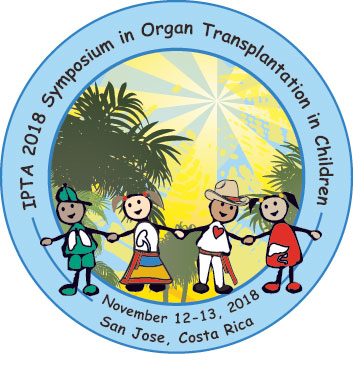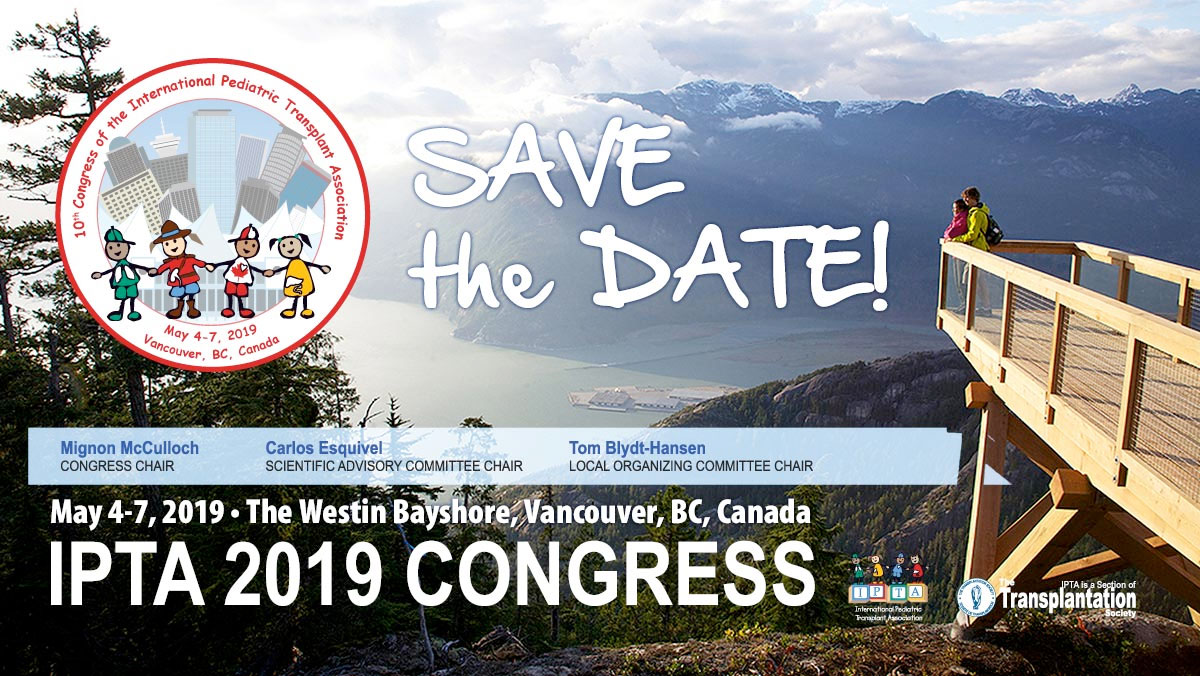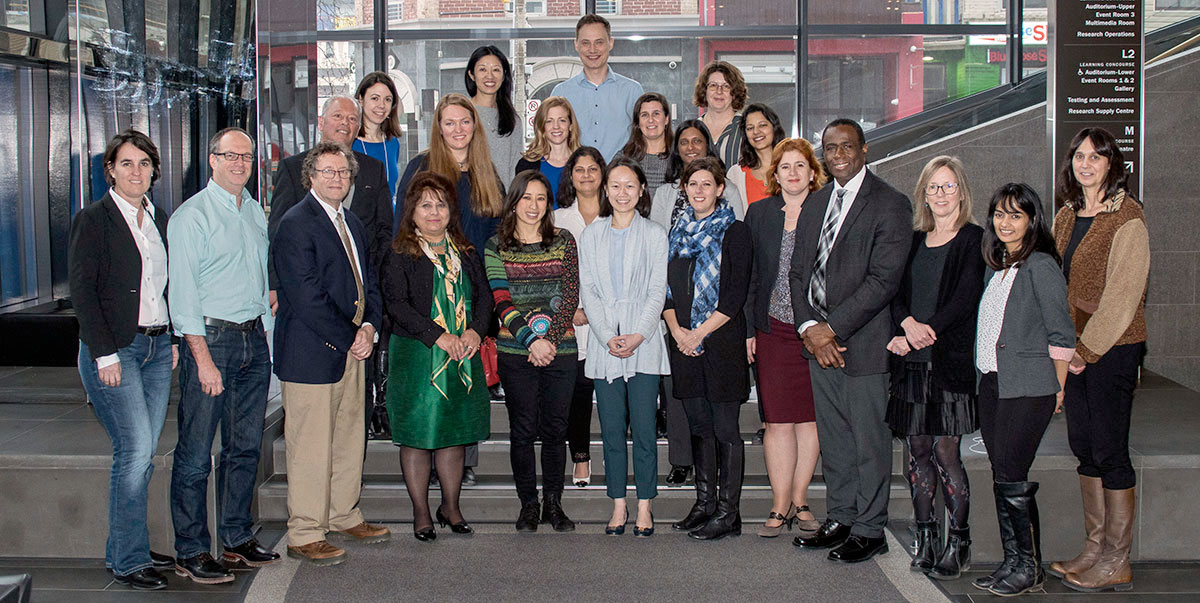IPTA Newsletter - March 2018


Donate to IPTA Now! Your donation will be used to help IPTA to promote the advancement of the science and practice of transplantation in children worldwide and to serve as a unified voice for the special needs of pediatric transplant recipients.

IPTA 2018 Symposium in Organ Transplantation in Children
The International Pediatric Transplant Association is proud to feature a special Section activity: the 2018 Symposium in Organ Transplantation in Children: An educational forum for physicians, surgeons, and allied health professionals.
The focus of this symposium is aimed at clinical and research fellows in pediatric solid organ transplantation, as well as residents, and other allied health professional or non-physician trainees who are planning a career in pediatric transplantation.
The symposium will also provide state of the art information to established physicians, surgeons and allied health professionals who participate in the care of children before or after solid organ transplantation. In this case, a registration fee of $150/ person applies. Maximum capacity for established practitioners will be 50.

Welcome to the introduction of the IPTA Ethics committee which is a new group that was formed at IPTA 2017 in Barcelona. We are currently working on a survey, which aims to explore the ethical issues within the paediatric transplant community across the world. This is based on original work in the adult transplant population through TTS and we have developed this for paediatric practice through IPTA.
We aim to survey those who are IPTA members or those who have attended IPTA conferences. We want to hear from all members of the multi-disciplinary teams and from all grades – even professors can give their opinion. However, any survey is only as good as the completed responses from the members and so we are very grateful to you all for spending time doing this survey.
Please find below the website address for the SurveyMonkey questionnaire.
COMPLETE THE SURVEYWe will let you know the results as soon as we have them available.
Many thanks for all your help,
Dr Stephen Marks, Consultant Paediatric Nephrologist and Principal Investigator
Dr Debra Lefkowitz, Co-Principal Investigator
Dr Richard Trompeter, Chair of IPTA Ethics Committee
Drs Anne Dipchand and Mignon McCulloch, IPTA President and President-Elect

With each newsletter, we will continue to have an IPTA member highlight important recent publications in an area of general interest. This newsletter’s literary highlights come from Rohit Kohli, MBBS, MS, Chief, Division of Gastroenterology, Hepatology and Nutrition, Children’s Hospital of Los Angeles.
- Allway R et al. (2017) Bioequivalence between innovator and generic tacrolimus in liver and kidney transplant recipients: A randomized, crossover clinical trial. PLoS Med; 14(11): e1002428.
Brand Tacrolimus vs. Generic Bioequivalence A recent study in PLoS Medicine reports on the bioequivalence between innovator (brand) and generic tacrolimus in adult liver and kidney transplant recipients. This was an 8 week randomized, crossover clinical trial with 35 renal transplant recipients and 36 liver transplant recipients. Within-subject variability was similar for the area under the curve (AUC) (range 12.11-15.81) and the concentration maximum (Cmax) (range 17.96-24.72) for all products. The within-subject variability was utilized to calculate the scaled average bioequivalence (SCABE) 90% confidence interval. The calculated SCABE 90% confidence interval was 84.65%-118.13% and 80.00%-125.00% for AUC and Cmax, respectively. Similar work in pediatric recipients is needed to address the specific pharmacokinetics of children and adolescents. - UHsu EK et al. Analysis of Liver Offers to Pediatric Candidates on the Transplant Wait List Gastroenterology. 2017 Oct;153(4):988-995. doi: 10.1053/j.gastro.2017.06.053.
Analysis: Pediatric liver offers on wait list in the USA A retrospective review of the US liver transplant wait-list over seven years resulted in identification of data for 3852 pediatric liver transplant recipients. To allocate liver donor organs to pediatric recipients the US system uses the Pediatric Endstage Liver Disease (PELD) scoring system and in addition a system for exceptions to the PELD is allowed through appeal. The authors report that amongst all the pediatric liver transplant candidates in the US that they reviewed, children who died or were delisted received a median 1 pediatric liver offer and waited a median of 33 days. Most importantly, of the children who died or were delisted, 45% died or were delisted with no offers. In a developed system such as that led by the United Network for Organ Sharing (UNOS) the death of a pediatric patient on the wait list with no offers is unconscionable. Therefore prioritization in the allocation for children and the future development of further improved risk stratification systems is required to eliminate wait-list mortality among children.


Want to stay up to date on transplantation? Want to test your knowledge? Here’s your chance! Introducing a new IPTA member benefit, the IPTA question. Members will have access to new questions with each newsletter with additional questions and answers available on the website. Each question will be accompanied by references to explain the correct and incorrect answers. It can be used as a teaching tool for students, residents and fellows as well.
Click HERE to procede.

Dear IPTA Colleagues,
The Publications and Communications Committee is happy to announce a new Peer Mentoring initiative. The overarching goal of this new initiative is to facilitate and improve the quality of publications being sent by our membership to transplant journals, especially Pediatric Transplantation. One means of achieving this goal is to assist our membership, especially junior faculty and faculty from emerging transplant communities, in manuscript preparation. This will allow for these members to have dialogue with those experienced in the publication process prior to final submission.
We are seeking interested individuals who would be willing to help out with this new initiative. Responsibilities would include providing reviewer style feedback to the mentee prior to manuscript submission, and being available for subsequent questions. All members, including non-physician members, are encouraged to participate.
If interested, please send your name, email, and any specific areas of research focus to peermentor@iptaonline.org.
Thank you in advance for your support,
Peer Mentoring Workgroup, IPTA
Chesney Castleberry, Workgroup Leader

Career Development and Mentoring
While watching televised coverage of the Winter Olympics this year, my daughter asked me whether or not she could try the skeleton event. The skeleton, for those unaware, involves placing oneself on a sled and sliding down a bobsled track at speeds up to 80 miles/hr or 130 km/hr…. headfirst. My daughter is 5 years old. So, my typical parental answer of course was “maybe when you are older” – hoping she will forget and never ask me again. While thinking later about my answer, I realized that at some point, each one of those Olympic competitors had somebody say “yes” when they asked the same question and there was a team of people who identified their strengths and weaknesses, encouraged them, coached them, and they became Olympians.
All of us have difficult moments early in our careers: The first patient that presents in a way different from anything you saw during your training (if this hasn’t happened to you yet, trust me, it will happen). The first difficult decision that you had to make about whether or not to list a child for transplant, and the conversation that had to take place with the child and their family. The first time a patient had a poor outcome on your watch. Even making the decision to pursue highly specialized training in transplant medicine.
In all of these situations a mentor can be extremely valuable. Having someone to call to discuss that difficult patient, or serve as a sounding board when all isn’t going well in your position. The beautiful thing about pediatric transplantation, is that we are a small, tight-knit community of professionals who constantly work together to improve outcomes in children after transplant. During my first trip to an IPTA meeting, I had the opportunity to discuss difficult cases with senior colleagues in pediatric heart transplantation and have been fortunate to be able to foster these relationships: emails about difficult clinical situations, advice about a research project, career advice. There is no limit to the value of a good mentor.
I am proud to say that the different committees of IPTA all understand the value of good mentorship, and are all tackling this idea of mentorship for our members. The Education Committee is publishing quarterly literary highlights in this newsletter, bringing attention to important papers that may not have caught our attention in the prior 3 months. The Outreach Committee is working on assessing outcomes of IPTA outreach activities and finding the most effective ways to bring transplant expertise to as many children as possible. The Publications and Communications Committee is planning a Peer-Mentoring workshop at the next IPTA Congress in Vancouver, and is starting work on an official program for mentoring writers to facilitate and improve the quality of publications submitted to our journal. The IPTA Council and the Education Committee have continued to support education activities such as the 2018 Symposium in Organ Transplantation in Children, a meeting focused on educating junior faculty and trainees. Please see the top portion of this newsletter for more information about this amazing educational opportunity.
Starting your career in pediatric transplantation will be scary at times - there’s really no way around it. But, with a little help from your friends and mentors, we can continue to bring high quality care to the children of the world who need transplantation. Sometimes, all we need is someone to say “yes” and give us a little push down the track…
I look forward to seeing all of you in San Juan and in Vancouver!
Jonathan N. Johnson, MD
Co-Chair, Publications and Communications Committee, IPTA

Pneumosystis Jiroveci (PJP) Survey – Last Chance!
Pneumocystis jiroveci (PJP) remains an important pathogen among organ transplant recipients. While there are published guidelines for PJP prophylaxis following transplantation, in practice, there is likely wide variability in the individual approach to prophylaxis. To better clarify the current practice among transplant centers, we are conducting a survey to assess the use of PJP prophylaxis following pediatric solid organ transplant recipients. The link to the survey is included in this edition of the Newsletter. It is approximately 12 questions and should take fewer than 10 minutes to complete.
We appreciate you taking the time to COMPLETE THE SURVEY, and all responses will remain anonymous.Guidance on the Use of Live Vaccines in Solid Organ Transplantation

IPTA partnered in this recent highly successful collaborative initiative held in Toronto on Feb 22-23 with world-leading experts on live vaccine use in pediatric solid organ transplantation. The aim is to develop an international consensus protocol to include standards relating (but not limited) to immunologic evaluation pre-vaccination, timing pre- and post-transplant for vaccination, and the optimal safety surveillance system. We expect that the meeting will result in a document and publication that will be used widely around the world. Stay tuned for further updates!

Do not miss a single issue of Pediatric Transplantation! In order to get email reminders of new articles or issues, IPTA members must activate their journal content alerts. Click on the link below to log into your account and activate these alerts.
Contact
Address
The Transplantation Society
International Headquarters
740 Notre-Dame Ouest
Suite 1245
Montréal, QC, H3C 3X6
Canada
Используйте Вавада казино для игры с бонусом — активируйте промокод и начните выигрывать уже сегодня!
